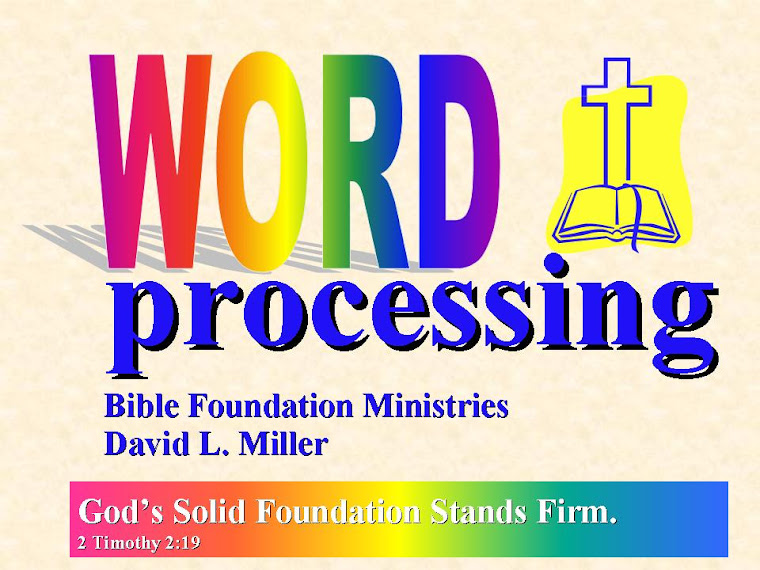
Little Connie sat in my office, wanting to “ask Jesus into her heart.” I explained the entire story to her: God’s holiness, our sin, Jesus’ sacrifice on the cross, and her need to trust Jesus as Savior and Lord. Then, I questioned her to see if she understood. “Connie, have you ever sinned?” “No.” I was a little shocked. I tried to explain sin to her again, thinking she must not be understanding me clearly. She stuck to her story. Little Connie wanted a Savior, but did not want to admit she needed one. She was blinded to her own sin.
Connie and I faced the amazing paradox of Christianity. Joy comes in the morning. We can only see the morning joys of salvation after the dark night of repentance. To be forgiven of sin, one must come face to face with the dark depravity of the soul.
And no one wants that. We like to rationalize our sinful attitudes and actions, justify them in the light of the actions of others or our circumstances, and enlist others to support us in our ungodliness. The last thing we ever want to do is turn on the light and see the filth.
That is a work of the Spirit in our hearts. He shines the light and makes us see ourselves for what we are. When Isaiah saw himself he cried, “Woe is me, I am undone.” It is never pleasant to see our human hearts as they really are. Not much fun.
In Psalm 130, the Psalmist says, “If you, O Lord, kept a record of sins, O Lord, who could stand?” He cried to God “out of the depths” of sin. He did not boast before God, he cried out for mercy. Each of us must come to that point of spiritual bankruptcy before we can experience the riches of God’s grace.
But here is the paradox: when I see my sin for all it is, when I am dismayed at my own wickedness, without excuse or justification, I receive the most amazing gift any human can receive – complete, wonderful, full, amazing forgiveness.
The Psalmist admitted that no one could stand before God’s record of sins, but then he realizes, “with you there is forgiveness.” In verse 7 he states that with God there is “unfailing love” and “full redemption.” When I took my sin to the Cross of Christ and laid it before him, I received grace. GRACE. God does not treat me on the basis of my sin. He relates to me “in Christ.”
It is hard to accept that. Human relationships are conditional, often temporary. It is hard to understand the awesome forgiveness of God. I still sin. I still fail my Savior, and I do it every day. But, GRACE! Amazing Grace! God’s forgiveness is more powerful than my own sin. He convicts me, restores me, renews me, and establishes me in his righteousness. Like the Psalmist, I have not only been redeemed, I have experienced “full redemption.”
Amazing Grace, how sweet the sound, that saved a wretch like me. I once was lost, but now am found, was blind, but now I see.
Connie and I faced the amazing paradox of Christianity. Joy comes in the morning. We can only see the morning joys of salvation after the dark night of repentance. To be forgiven of sin, one must come face to face with the dark depravity of the soul.
And no one wants that. We like to rationalize our sinful attitudes and actions, justify them in the light of the actions of others or our circumstances, and enlist others to support us in our ungodliness. The last thing we ever want to do is turn on the light and see the filth.
That is a work of the Spirit in our hearts. He shines the light and makes us see ourselves for what we are. When Isaiah saw himself he cried, “Woe is me, I am undone.” It is never pleasant to see our human hearts as they really are. Not much fun.
In Psalm 130, the Psalmist says, “If you, O Lord, kept a record of sins, O Lord, who could stand?” He cried to God “out of the depths” of sin. He did not boast before God, he cried out for mercy. Each of us must come to that point of spiritual bankruptcy before we can experience the riches of God’s grace.
But here is the paradox: when I see my sin for all it is, when I am dismayed at my own wickedness, without excuse or justification, I receive the most amazing gift any human can receive – complete, wonderful, full, amazing forgiveness.
The Psalmist admitted that no one could stand before God’s record of sins, but then he realizes, “with you there is forgiveness.” In verse 7 he states that with God there is “unfailing love” and “full redemption.” When I took my sin to the Cross of Christ and laid it before him, I received grace. GRACE. God does not treat me on the basis of my sin. He relates to me “in Christ.”
It is hard to accept that. Human relationships are conditional, often temporary. It is hard to understand the awesome forgiveness of God. I still sin. I still fail my Savior, and I do it every day. But, GRACE! Amazing Grace! God’s forgiveness is more powerful than my own sin. He convicts me, restores me, renews me, and establishes me in his righteousness. Like the Psalmist, I have not only been redeemed, I have experienced “full redemption.”
Amazing Grace, how sweet the sound, that saved a wretch like me. I once was lost, but now am found, was blind, but now I see.


